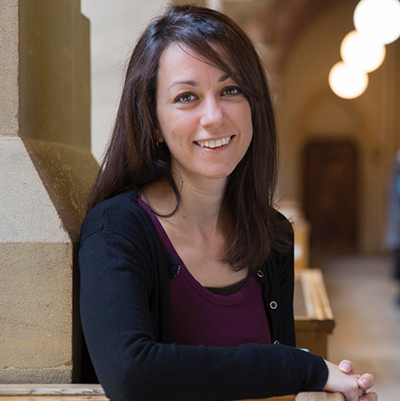
Dora Biro
Principal Investigator
Dora Biro is the Beverly Petterson Bishop and Charles W.
Bishop Professor of Brain and Cognitive Sciences at the
University of Rochester. She received her PhD from the
University of Oxford and subsequently held a JSPS
postdoctoral research fellowship and a visiting
professorship at the Primate Research Institute of Kyoto
University, Japan, before returning to Oxford as a Royal
Society University Research Fellow and later Professor
of Animal Behaviour. Her research interests are centered
on animal cognition and collective animal behavior,
including navigation, tool use, culture, and collective
decision-making.
Email:
dbiro@ur.rochester.edu
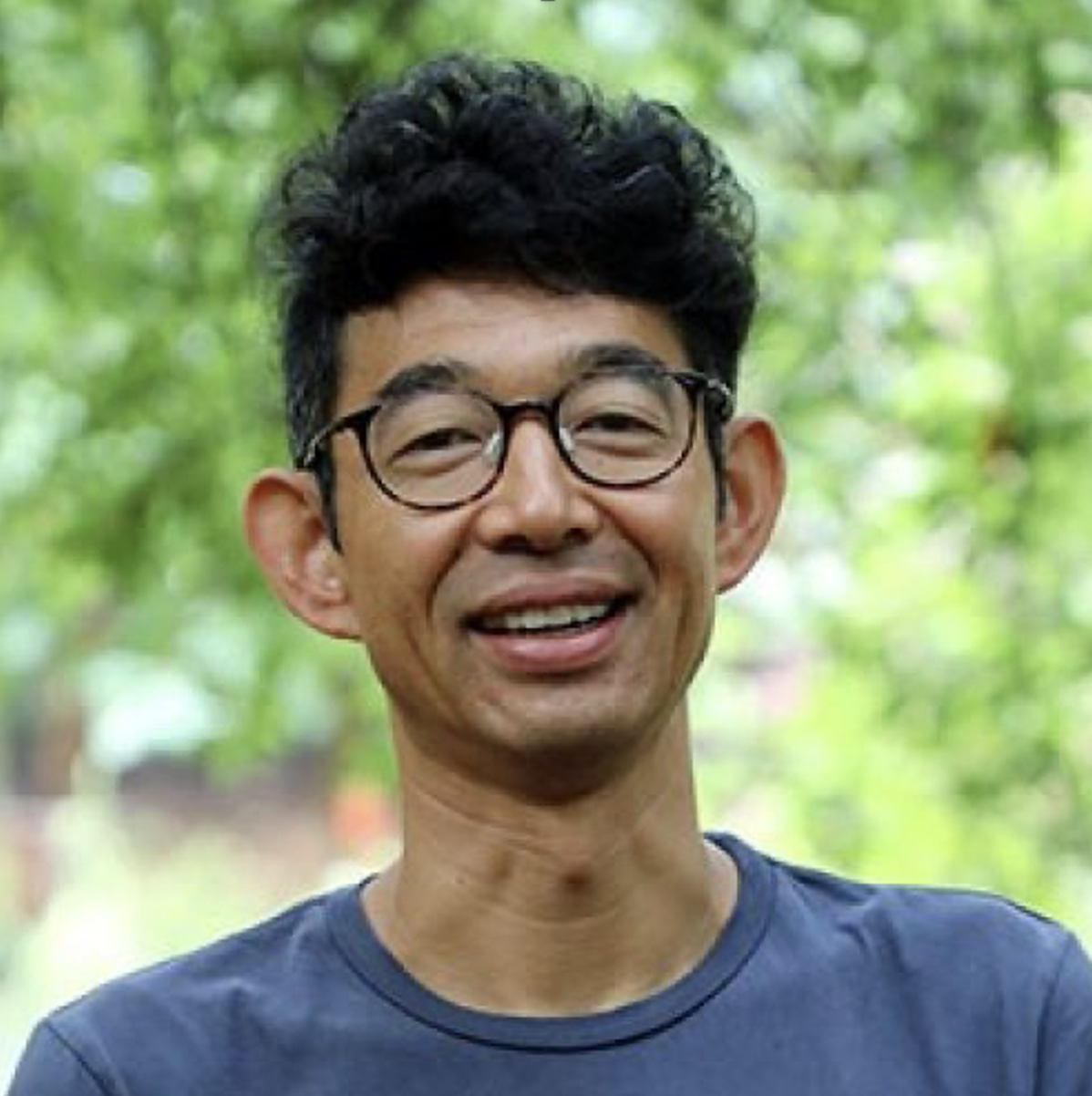
Takao Sasaki
Principal Investigator
Takao Sasaki is an Associate Professor in the Brain and
Cognitive Sciences at the University of Rochester. He
obtained a Ph.D. in Biology from Arizona State
University and remained at the same institute as a
postdoctoral researcher for a year. He then became a
postdoctoral fellow in the Department of Zoology,
University of Oxford. Prior to joining the University of
Rochester, he was an Assistant Professor in the Odum
School of Ecology at the University of Georgia. His main
research interest is to understand collective decision
making—how a group of individuals processes information
together and achieves higher cognitive performance than
a lone individual.
Email:
takao.sasaki@rochester.edu
Current Members
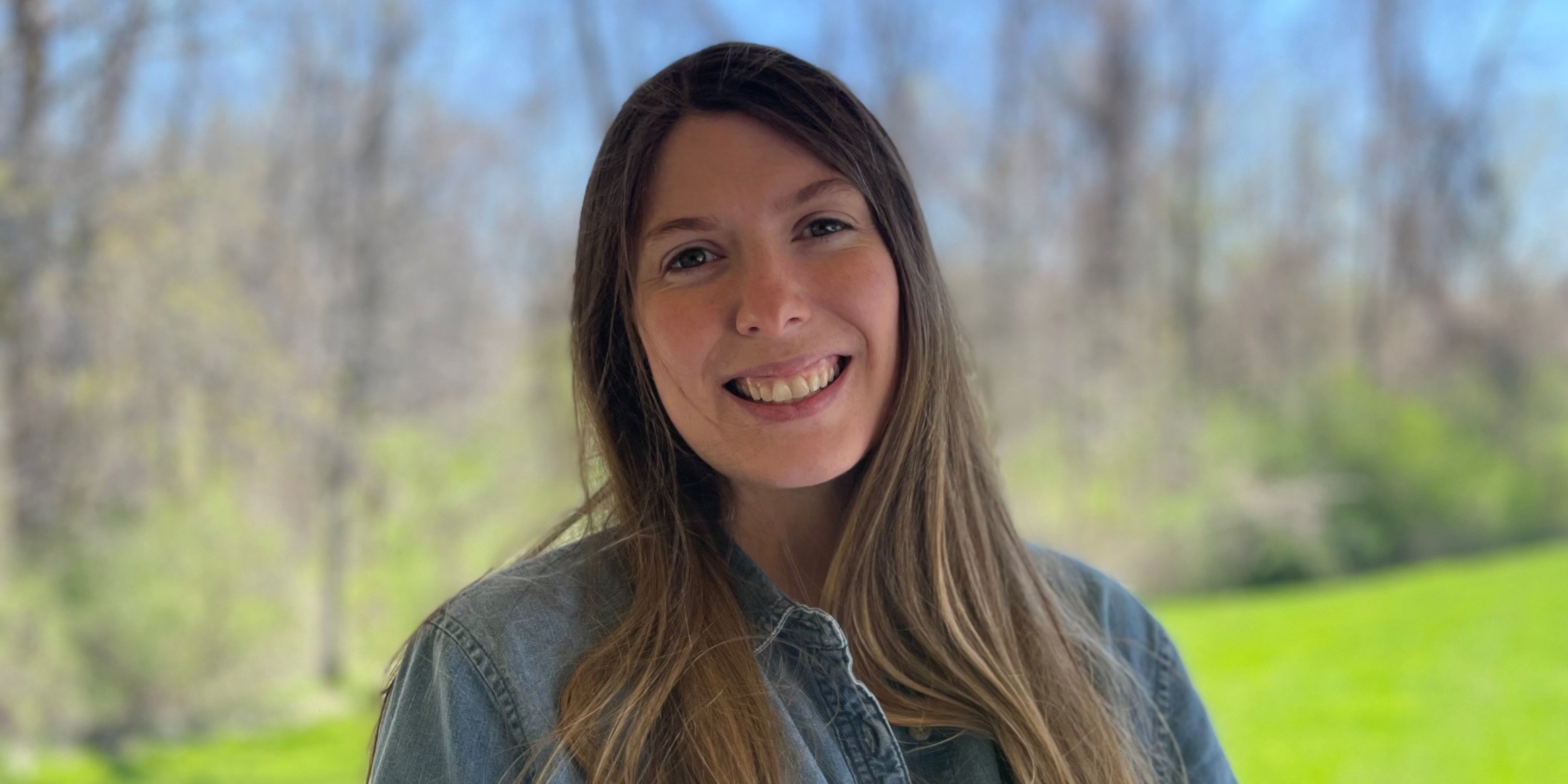

Emily Wiler
Lab Manager | Biro Lab
As a licensed veterinary technician with 8 years of
experience, I started my career in general practice
focusing on orthopedic surgery and recovery. I came to
the University of Rochester in 2021 to pursue a career
working with Primates. After a couple of years as a lab
manager working with macaques, I took the opportunity to
join Biro lab as their lab manager. My focus is on
animal care and enrichment, as well as positive
reinforcement training to better impact the quality of
life for research animals.
Email: ewiler@ur.rochester.edu
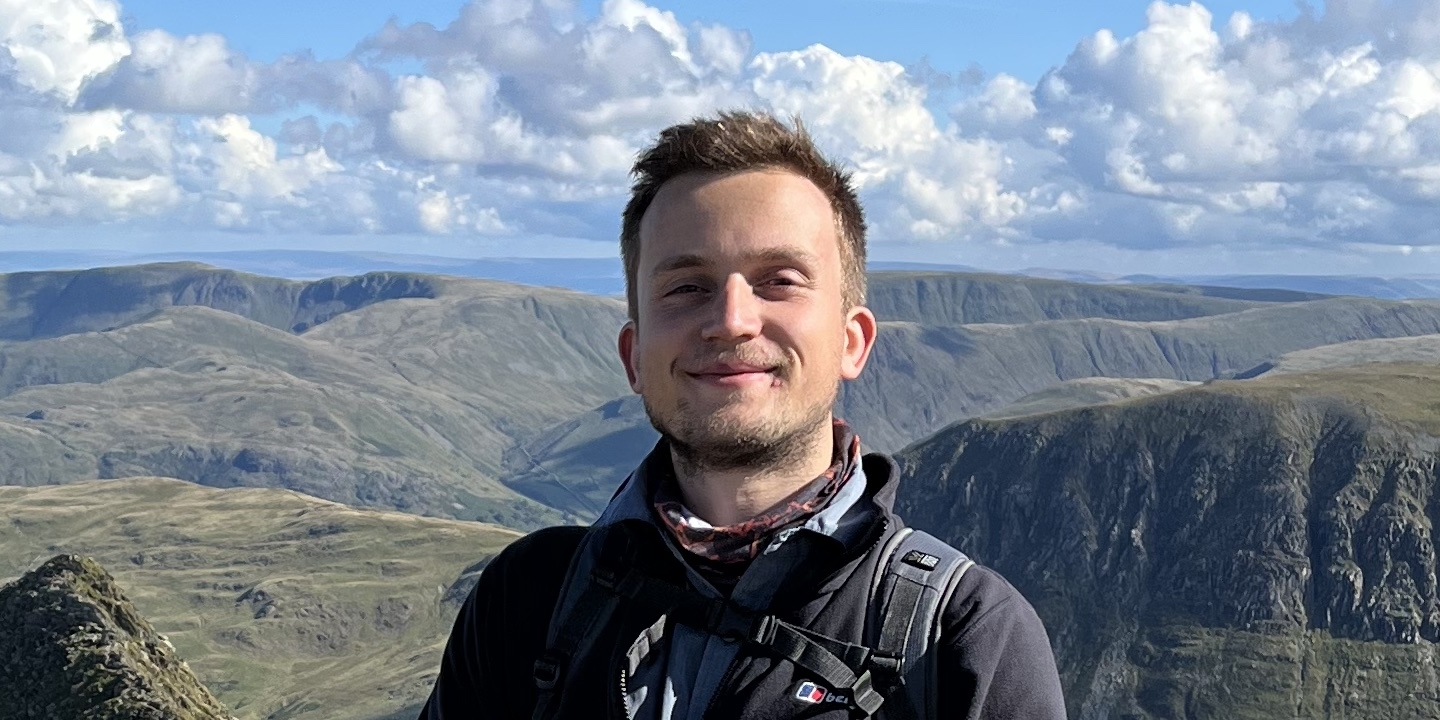
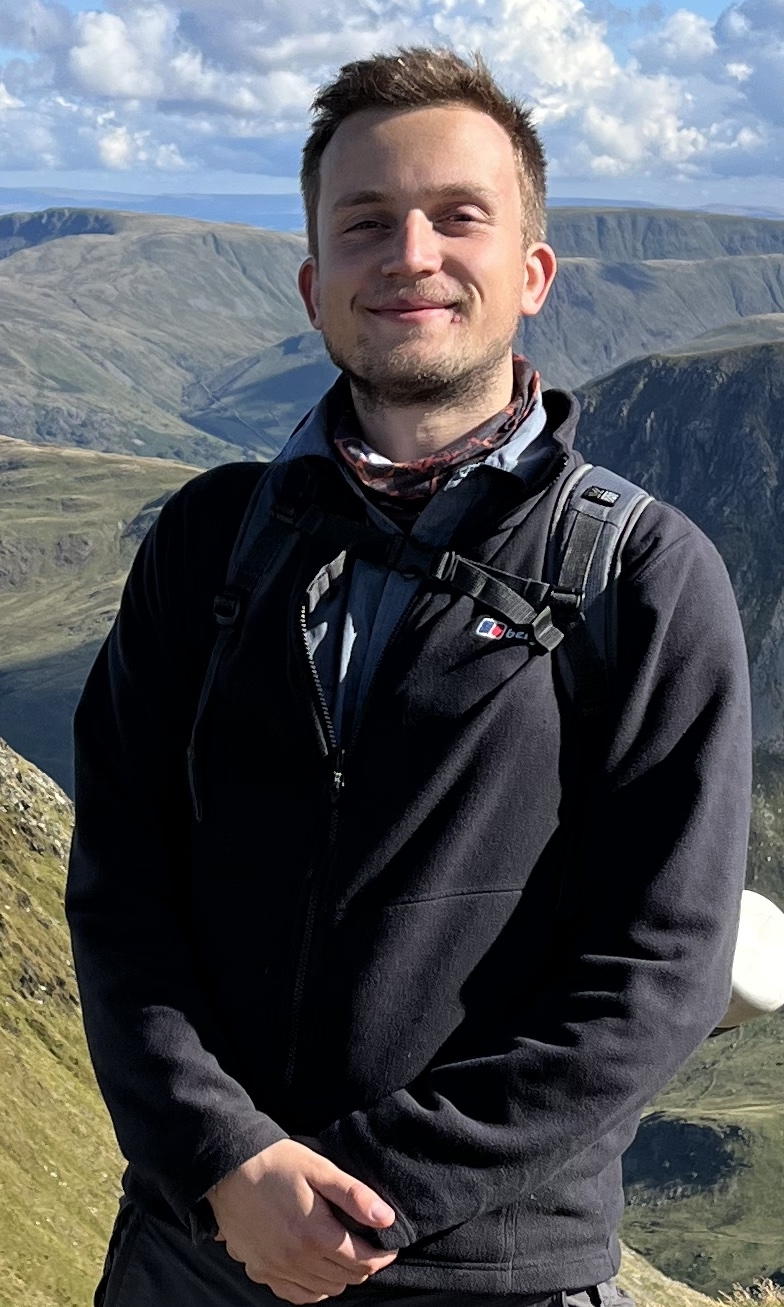
Joe Morford
Post Doc | Biro Lab
Hello! I am Joe Morford, and I am a postdoctoral
researcher in Dora Biro’s research group. My research
focusses on collective navigation, using homing pigeons
as a model species. In particular, I am interested in
how groups can integrate information from composite
members to navigate more efficiently as a collective
than any of the individuals could achieve alone. I
completed my doctorate at the Biology Department,
University of Oxford, under the supervision of Tim
Guilford, focussing on long-distance navigation in
animals through carrying out experimental studies on
Manx shearwaters and homing pigeons.
Email: jmorford@ur.rochester.edu
Projects:
Collective Navigation
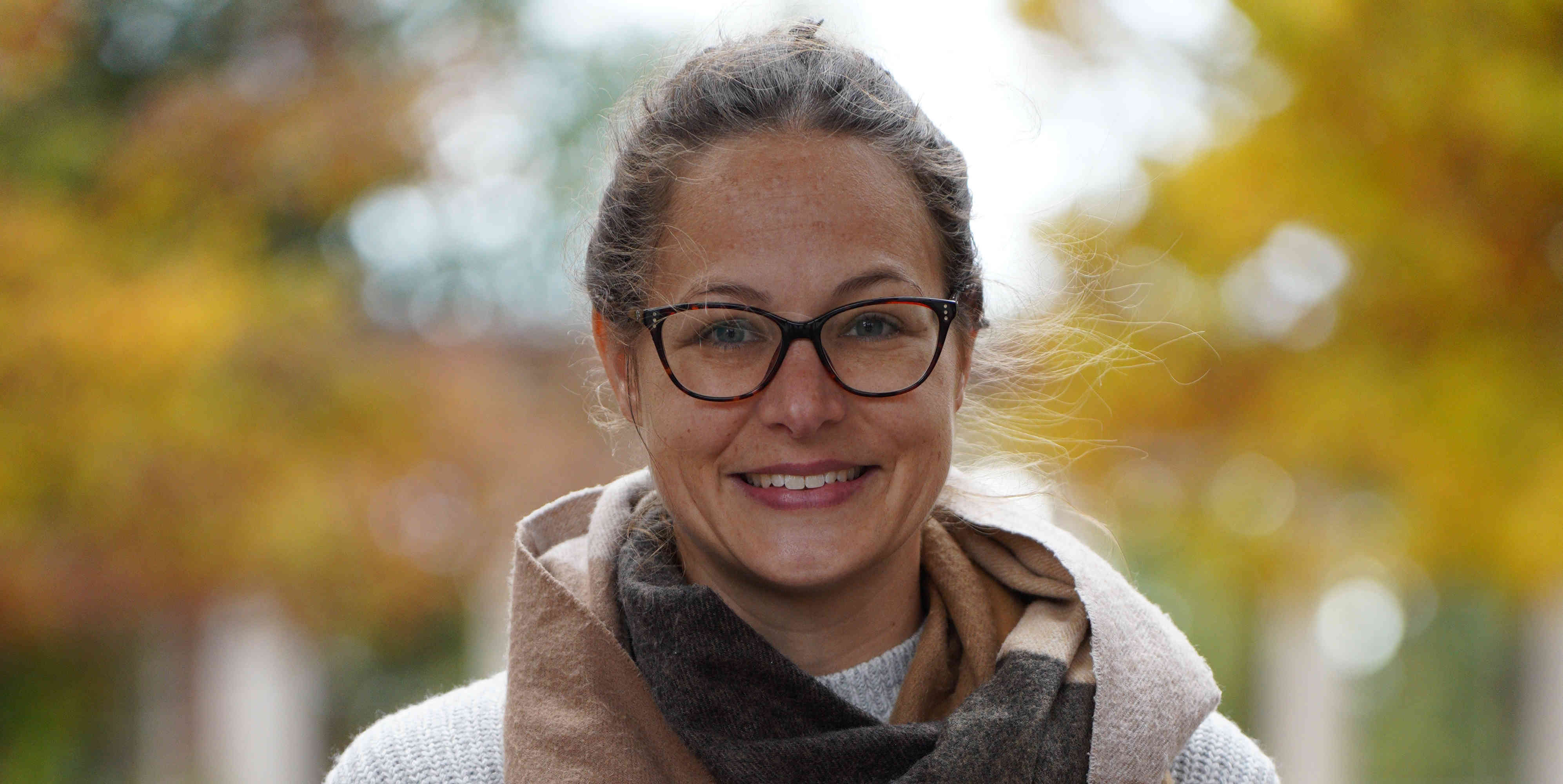

Mélisande Aellen
Post Doc | Biro Lab
With a decade of experience in marine fish research with
Professor Redouan Bshary at the University of Neuchâtel,
I have worked at both the Gump Research Station in
Moorea, French Polynesia, and Lizard Island in
Australia. My principal methodology involved
experimental testing of wild-caught fish under
laboratory conditions. Additionally, I contributed to
the development of new behavioral paradigms for
cognitive studies of fish. My previous studies focused
on individual cognitive performance. With this
postdoctoral position, I will be able to examine
cognitive performance at the collective level. I was
drawn to the challenge of building a new freshwater fish
laboratory facility to study rationality at both
individual and group levels.
Email:
maellen@ur.rochester.edu
Projects:
Collective Rationality


Adam Kissai
Grad Student | Sasaki Lab
Hi, I’m Adam Kissai. I am a graduate student in the
Brain and Cognitive Sciences department working with
Professor Takao Sasaki. Prior to working with Professor
Sasaki I obtained a Bachelor of Science from the
University of Durham, studying both Biology and
Psychology. During this time, I became fascinated with
integrating the study of animal behavior and genetics.
Subsequently, I obtained a Masters in Psychology, where
I worked with zoo-housed primates to investigate their
sequence learning capacities, which cemented my interest
in working with animals to understand behavior at
multiple levels of biological organization. Currently I
am working with Solenopsis invicta, the red imported
fire ant, a species that forms both multi-queen and
single-queen colonies depending on the genetics of the
workers. Using this model system, we aim to understand
how groups of interacting individuals develop emergent
colony-level phenotypes. With a mixture of genetic
techniques and careful behavioral experiments I hope to
enhance our current understanding of how different
levels of biological organization interact, from genes
to whole groups of organisms, providing a deeper
understanding of how complex behaviors emerge.
Email:
akissai@ur.rochester.edu

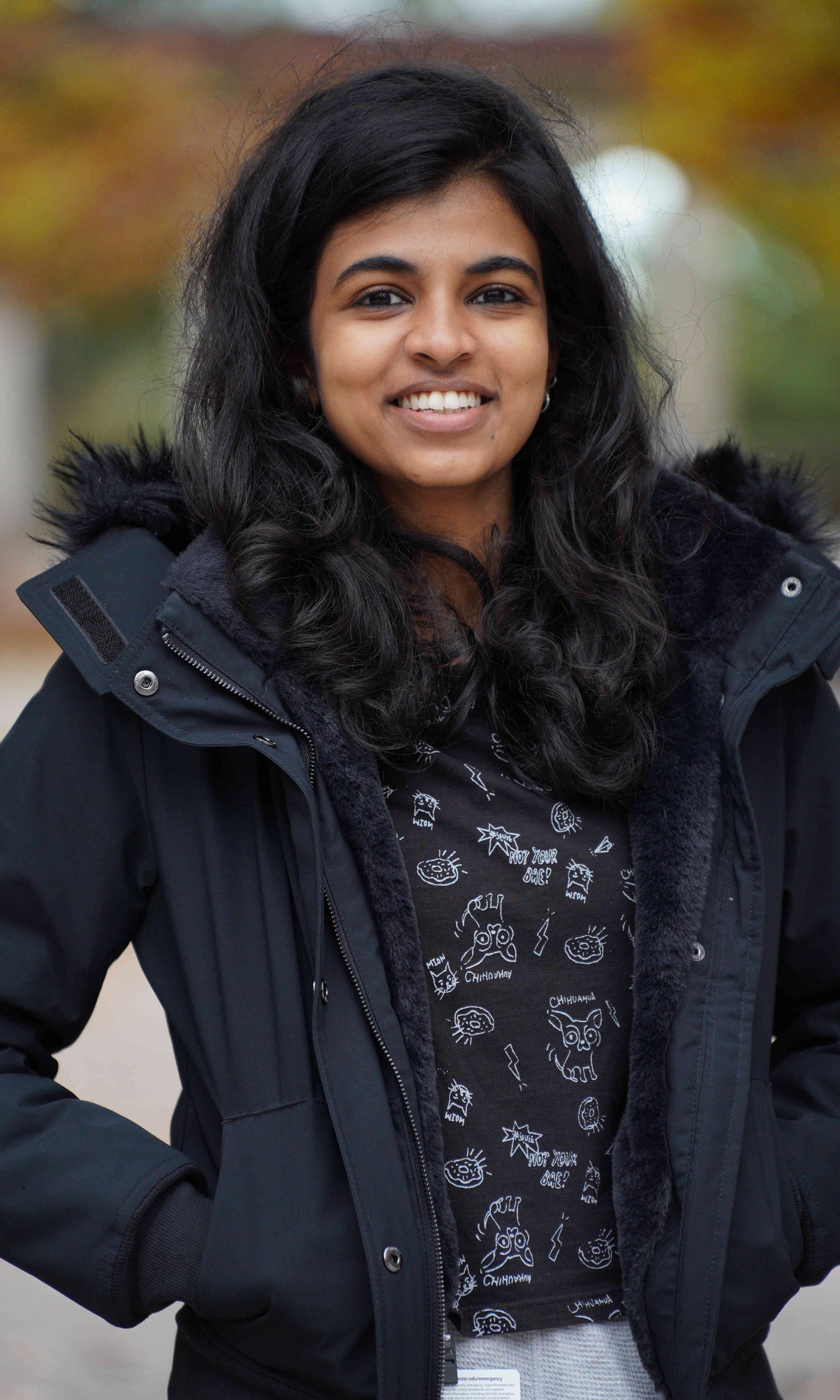
Oviya Mohan
Grad Student | Biro Lab
I started my PhD in the Dept. of Brain and Cognitive
Sciences at the University of Rochester in 2021 after
finishing a bachelor’s in Physics at Amrita University,
Coimbatore and a master’s in Cognitive Science at the
Indian Institute of Technology Kanpur, Kanpur in India.
I am interested in understanding the cognitive
underpinnings of coordinated problem-solving by
exploring them across various species, including
marmosets and humans. I also collaborate with
Dr. Jude Mitchell
on using eye-tracking methods to better understand
social cognition that facilitates successful
coordination. I take an interdisciplinary approach to my
research and aim to incorporate deep learning and
machine vision tools to study collective behavior in
naturalistic settings. I also enjoy designing and
conducting outreach activities that focus on sharing an
interest in science with a diverse audience.
Email:
omohan@ur.rochester.edu
Website:
https://oviya-mohan.github.io
Projects:
Collective Problem Solving,
Emergence of Conventions
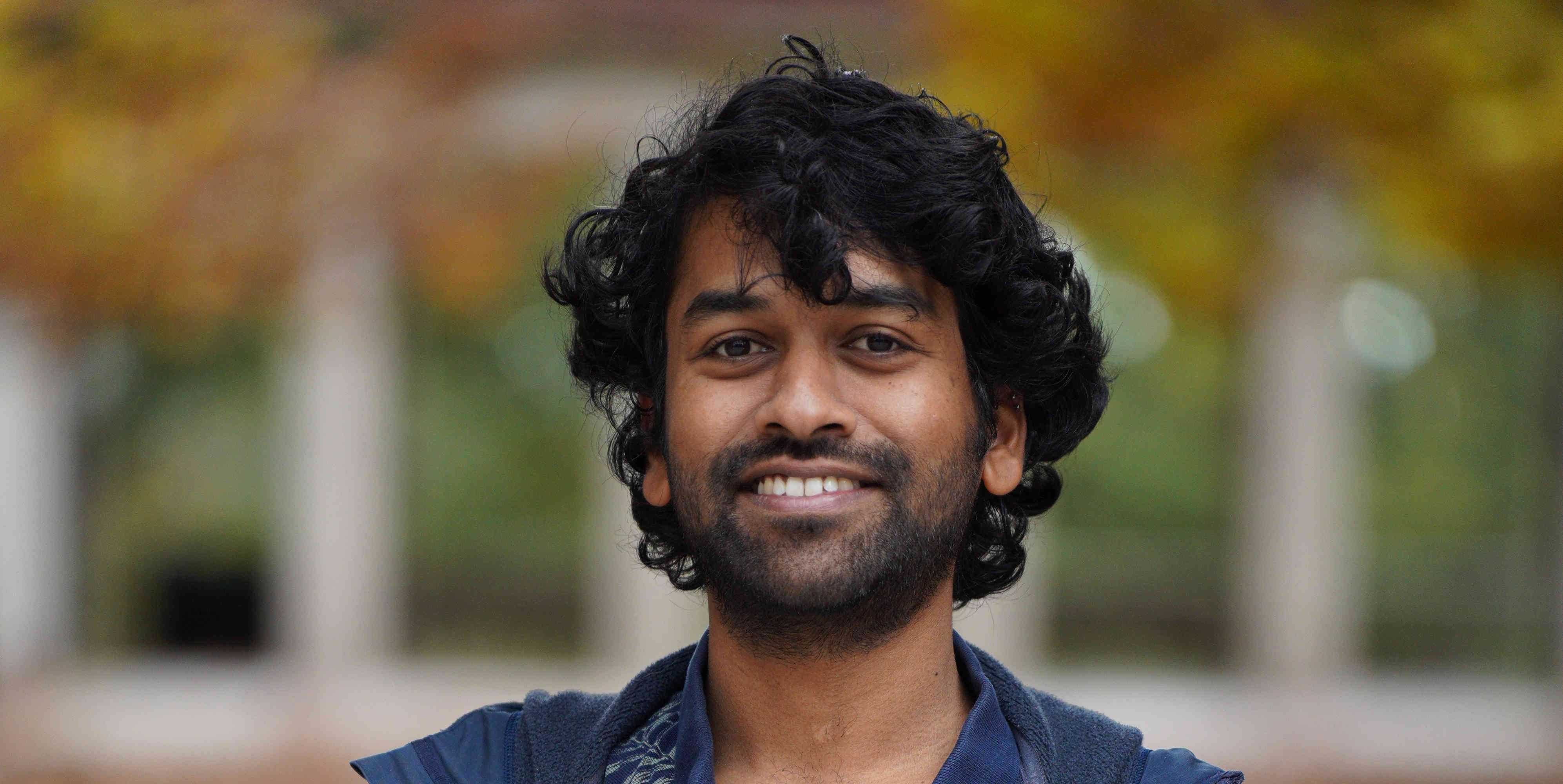
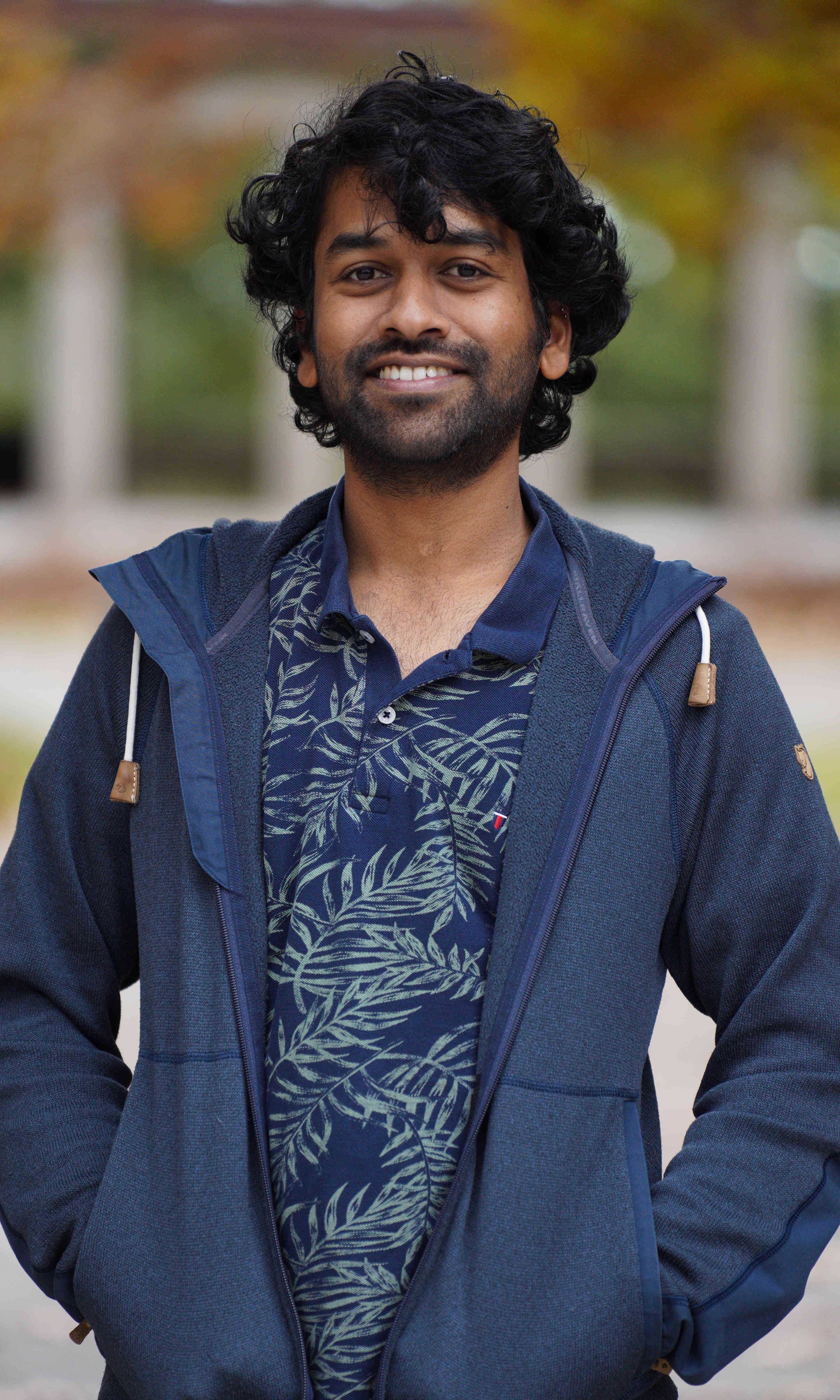
Rithwik Cherian
Grad Student | Biro Lab
Hello! I am Rithwik, a graduate student in the Brain and
Cognitive Sciences Department here at the University of
Rochester. Before joining the PhD program, I did a
master’s in Cognitive Science and a bachelor’s in
Aerospace Engineering both from the Indian Institute of
Technology Kanpur, India. For my master’s thesis, I
studied the emergence of basic color terms in
heterogenous populations of colorblind agents using
agent-based modeling. At the Collective Cognition Lab, I
am working on studying cognitive and developmental
mechanisms of collective navigation and cumulative
culture in animal groups. I plan to use both simulations
and experiments to comparatively study fundamentals of
navigation and culture in different species. I am deeply
fascinated by the research area of complex systems and
hope to incorporate ideas of complex systems science
into my research.
Email:
rcherian@ur.rochester.edu
Projects:
Collective Navigation
Past Members
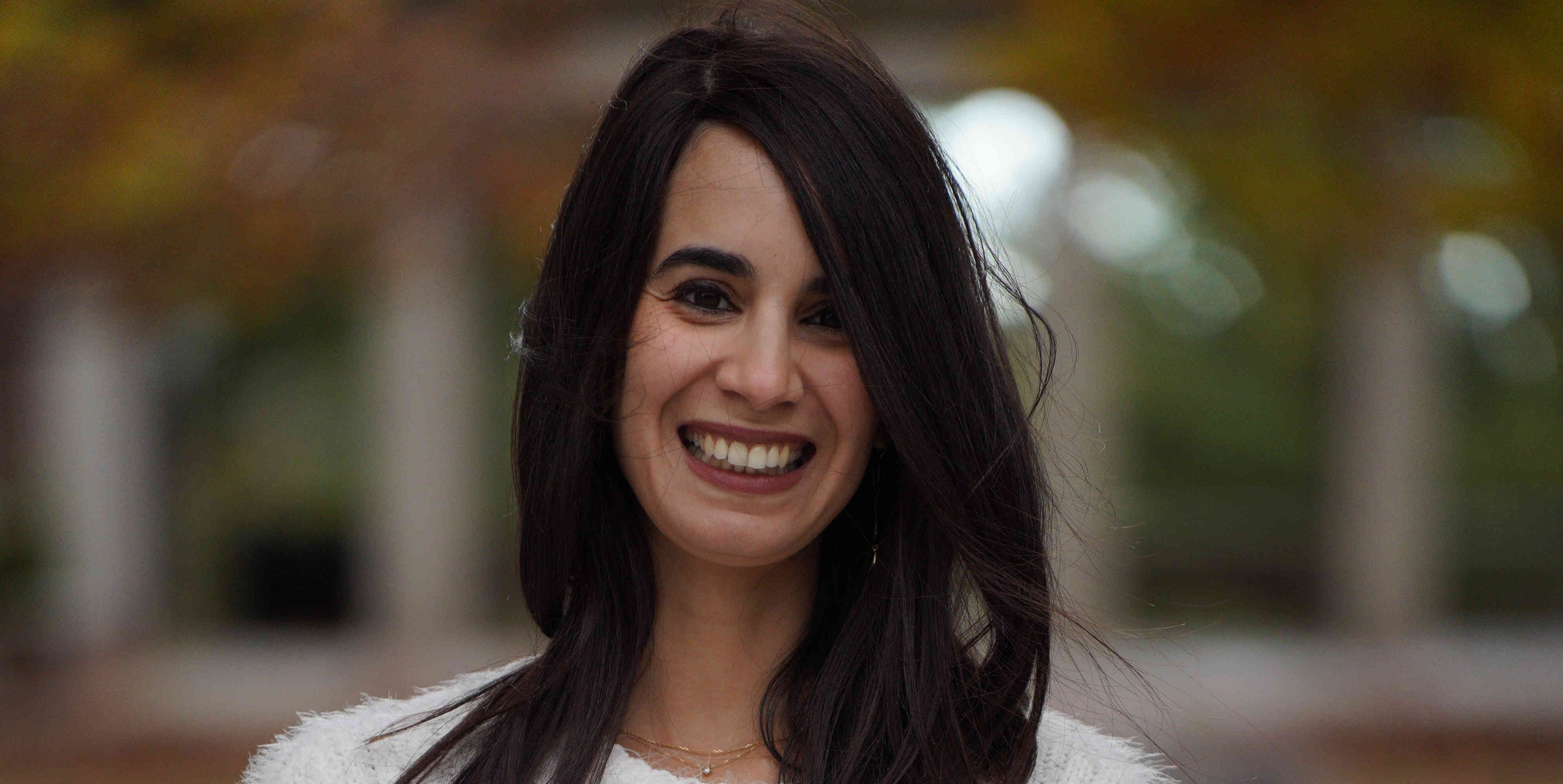

Samara Danel
Post Doc | Biro Lab
I am currently conducting my postdoctoral fellowship at
the University of Rochester and the
Seneca Park Zoo
on African penguins (Spheniscus demersus), with the goal of understanding how decision making
is influenced by context (social vs. asocial). Since
2019, I have also been studying cognition (e.g.,
reasoning, flexibility, problem-solving, social
learning, human-animal communication) in wild
sub-Antarctic seabirds (i.e., skuas, sheathbills,
Charadriiformes), integrating ecology and mechanisms to
better understand the evolution of cognition
(collaboration with
Dr. Francesco Bonadonna).
Email:
samara.danel@gmail.com
Projects:
Individual Reasoning,
Collective Navigation
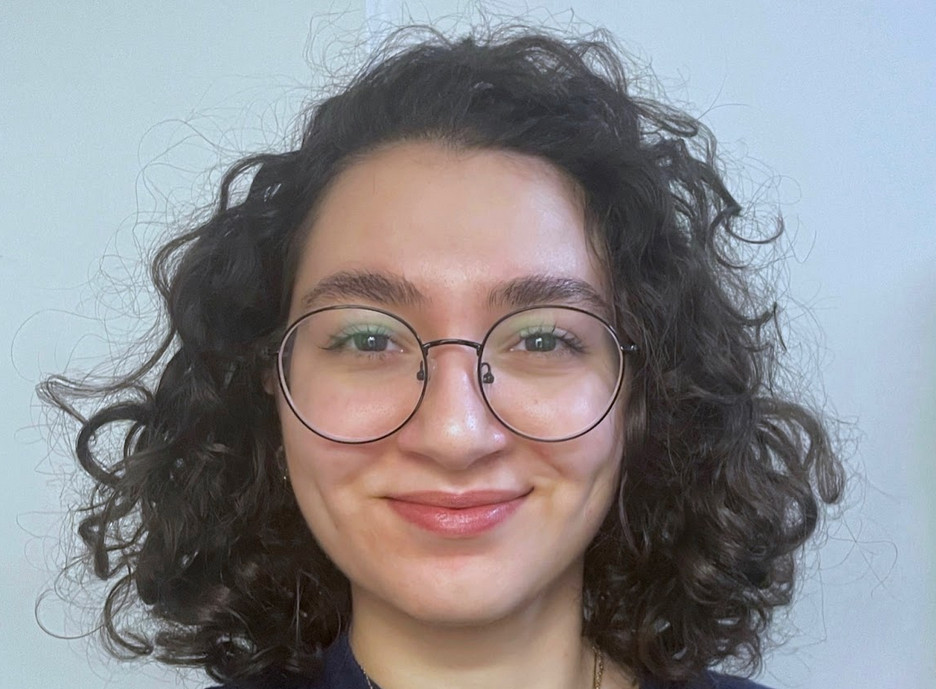
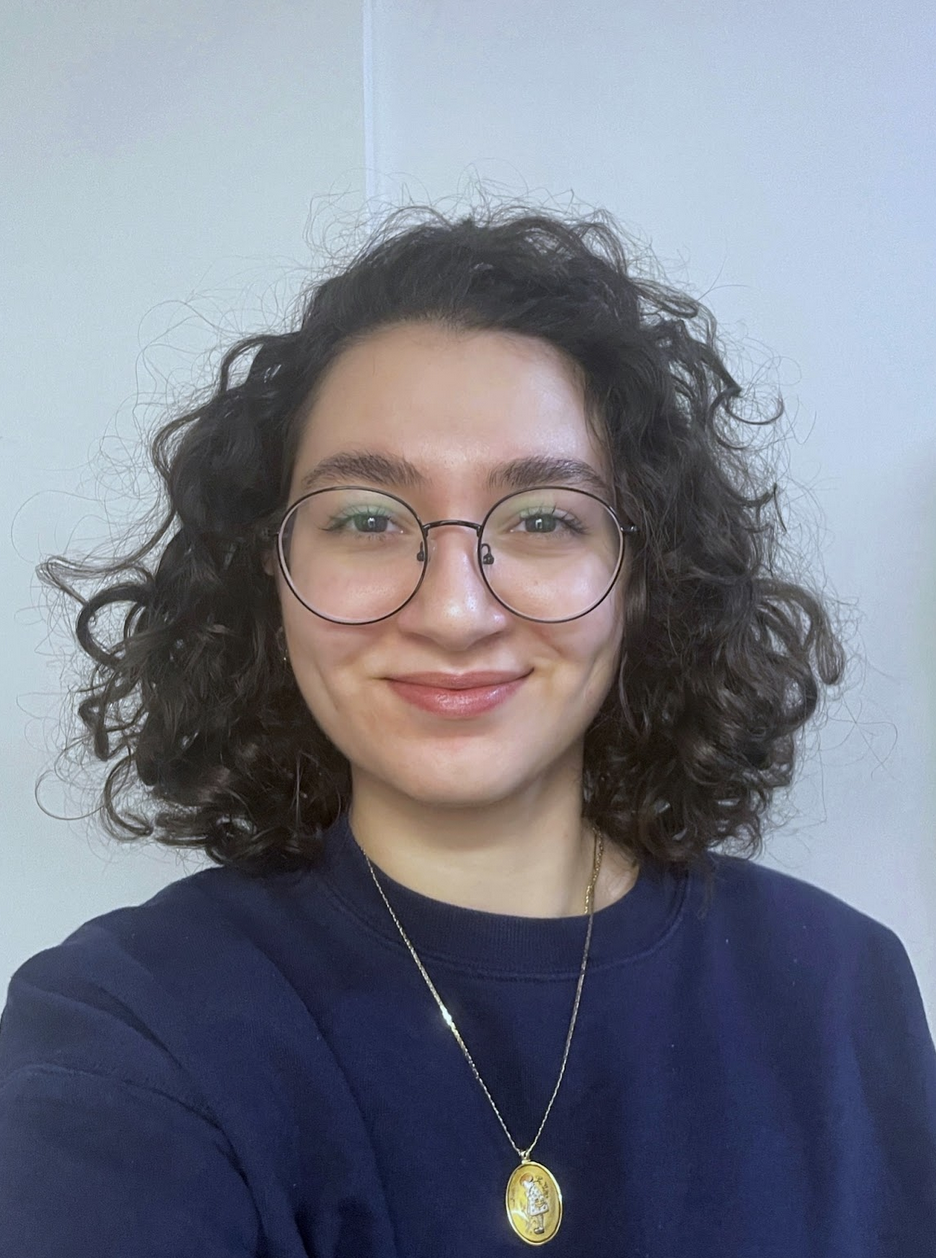
Enana Jacob
Undergraduate Student | Biro Lab
I am a class of 2025 undergraduate majoring in
Neuroscience at the University of Rochester. I am
working on tracking the gazing behavior of marmosets
during trained collective decision-making tasks.
Projects:
Collective Problem Solving
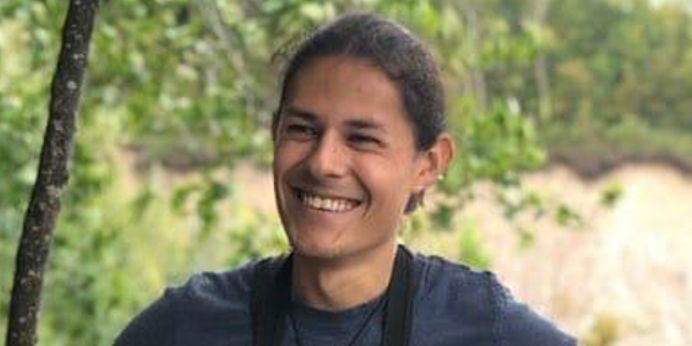
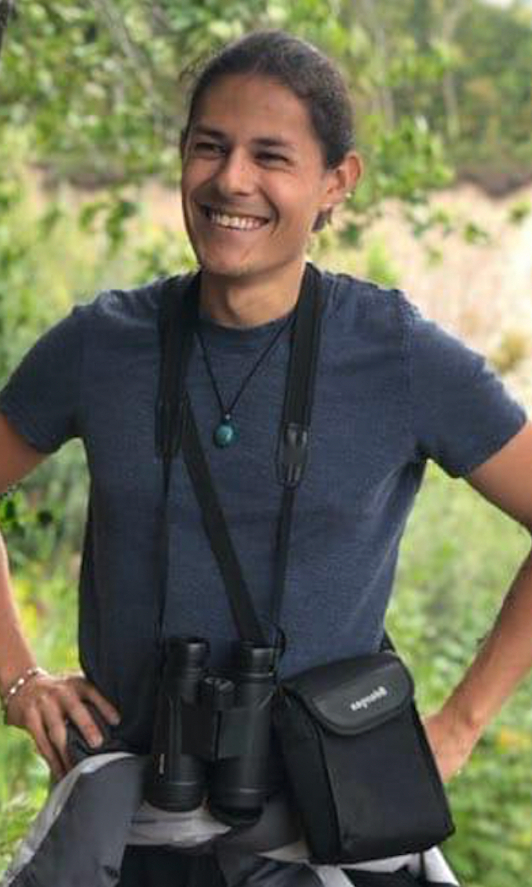
Federico Sanchez Vargas
Undergraduate Student | Biro Lab
I majored in Psychology and Ecology and Evolutionary
Biology at the University of Rochester. In the
Collective Cognition Lab (in collaboration with
the Mitchell Lab) I helped design and implement markerless tracking of
marmoset behavior and social attention during collective
problem-solving tasks. I am currently doing a PhD at
Emory University on wild capuchin monkey cognition,
assessing individual variation in cognition and its
relationship to social positioning (e.g. rank) and
social learning strategies.
Projects:
Collective Problem Solving


Janejira Chapoomee
Undergraduate Student | Biro Lab
I am an undergraduate majoring in neuroscience at the
University of Rochester. I am working on tracking gazing
behavior of marmosets as they perform collective
problem-solving tasks.
Projects:
Collective Problem Solving


Kiet Nguyen
Undergraduate Student | Biro Lab
I am an undergraduate majoring in Computer Science and
Statistics at the University of Rochester. My main task
at the lab is to implement computer vision pipelines
that enable our lab to conduct 3D markerless tracking of
animals during collective decision-making tasks.
Projects:
Collective Problem Solving


Dianileez Flores
High School Summer Intern | Biro Lab
Dianileez is a student at East High School, Rochester.
She worked on a project titled "Quantifying Personality
in Marmosets" as part of the
NeuroEAST
summer internship program. The project involved
developing ethograms and personality assessment
questionnaires for marmoset caretakers, in order to
quantify personality traits and associated behavioral
variation in marmosets.
Projects:
Collective Problem Solving


Gypsy Malave
High School Summer Intern | Biro Lab
Gypsy is a student at East High School, Rochester. She
worked on a project titled "Probability Matching in
Ants" as part of the
NeuRocHS
summer internship program. She worked on creating an
automated ant feeder system using a Raspberry Pi and
stepper motors. The feeder system was used to conduct a
pilot study to investigate the probability matching
behavior of ants.
Projects:
Collective Problem Solving
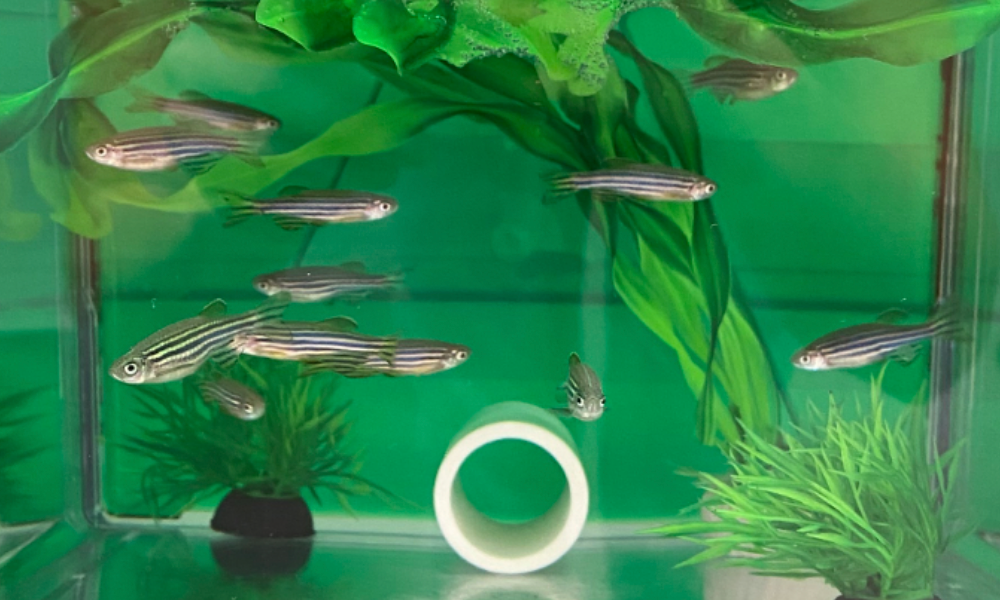
Zebrafish
(Danio rerio)
Research Subject
Zebrafish (Danio rerio)
are tropical freshwater fish from South Asia. They are
typically found in shallow, standing or low-current
water. Their habitats vary with the seasons, and as a
result they are well adapted to tolerating fluctuating
conditions in their environment. Zebrafish have been
widely studied in the fields of genetics, developmental,
and medical research; however, over the past decade,
they have also become a key species in cognitive and
collective behavioral studies. The zebrafish’s
relatively “simple” cognition and tendency to shoal make
it a valuable comparative datapoint for our overall
project, which aims to compare the mechanisms and
outcomes of collective decision-making across species
varying in levels of sociality and cognitive
sophistication.
Projects:
Collective Rationality
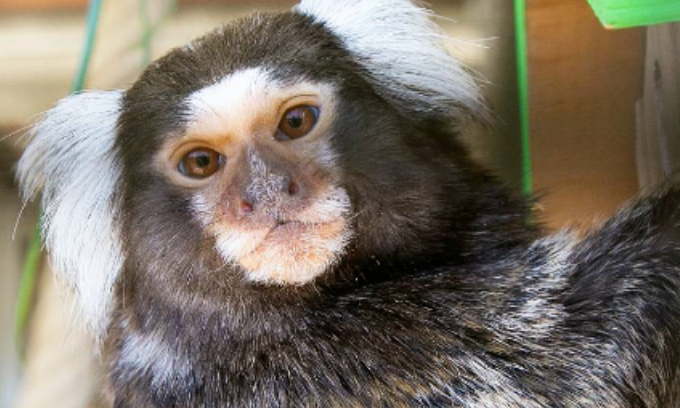
Marmosets
(Callithrix jacchus)
Research Subject
Common marmosets (Callithrix jacchus) are a species of small-bodied New World monkeys
endemic to Brazil. They are cooperative breeders: they
live in groups with an average of 8-10 individuals which
usually includes only one breeding pair while other,
older, members of the group help assist with raising
offspring. This unusual social structure along with
marmosets’ propensity for prosociality make them
interesting models to study the evolutionary origins of
coordinated behavior. They are also gaining popularity
as model organisms in vision research, where they are
studied in both controlled as well as free-moving,
naturalistic settings within the laboratory.
Projects:
Collective Problem Solving
Image Source
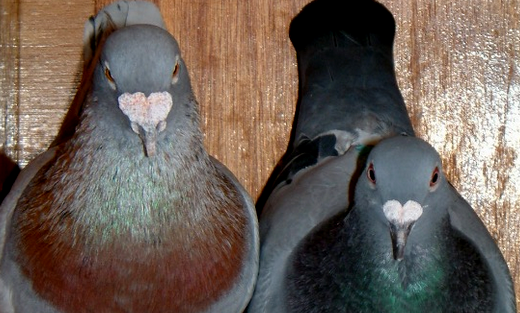
Homing Pigeons
(Columba livia)
Research Subject
Homing pigeons (Columba livia) have been a paradigmatic species in the field of
animal navigation for many decades, helping researchers
uncover the cognitive basis of orienting through both
familiar and unfamiliar landscapes. Centuries of
domestication and selective breeding have increased the
homing motivation of these birds (rather than their
navigational skills per se), meaning that once they are
taken to and released at a given location, they will
immediately set out towards the home loft and return on
as direct a path as they are able to compute, without
delays or stopovers. As a consequence, we can evaluate
their flight paths as the direct outcome of these
computations, giving us uniquely clear insights into the
underlying cognitive operations.
Projects:
Collective Navigation,
Collective Rationality
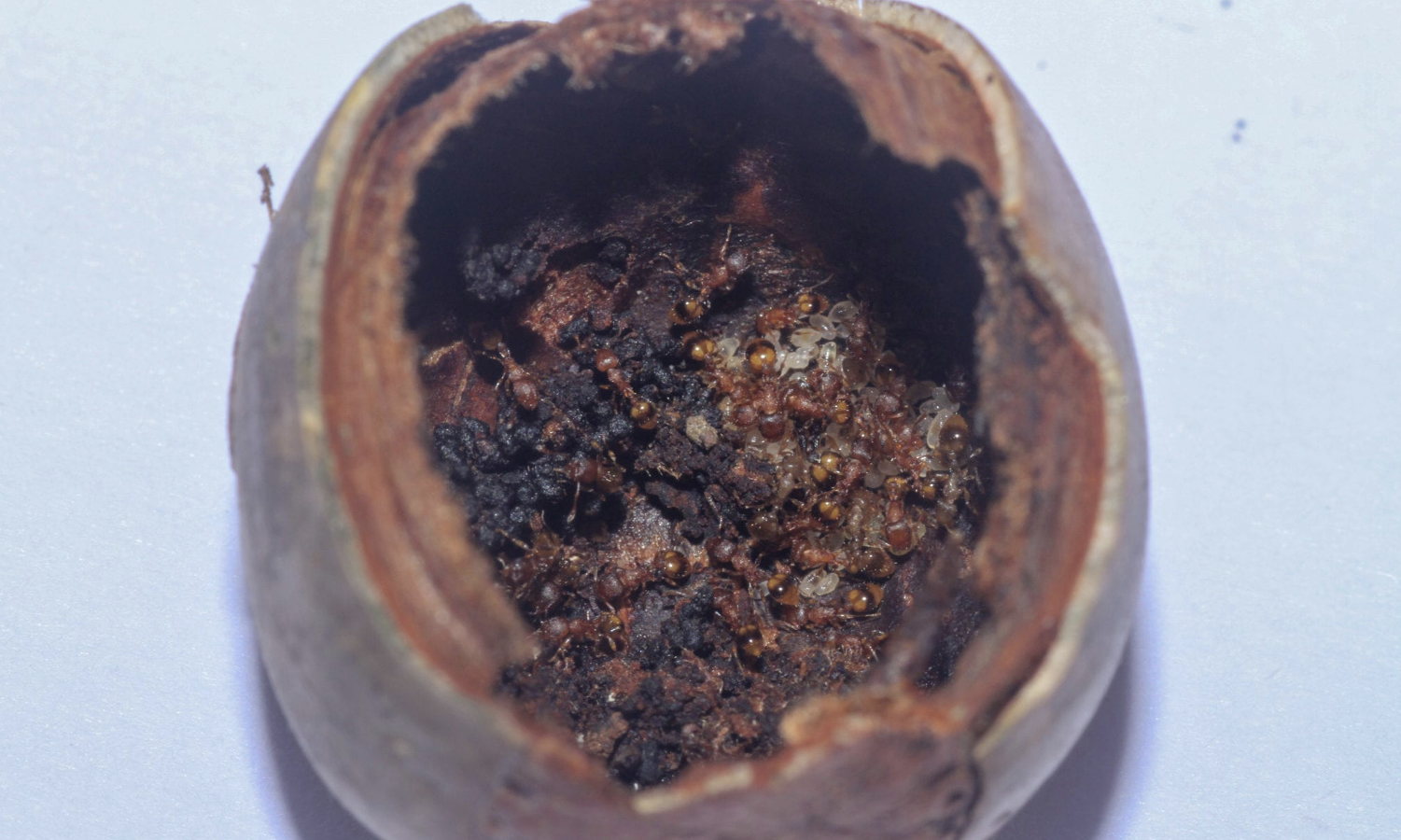
Acorn Ants
(Temnothorax curvispinosus)
Research Subject
Acorn ants (Temnothorax curvispinosus) are native to New York. As you may have gathered from
the picture, they typically live in acorns, or other
nuts. During foraging, these ants use a pair recruitment
system called ‘tandem running’ and choose the best
option as a colony. We ask questions such as: Do
colonies always pick the best option among several using
the tandem-running recruitment? Do followers learn
routes from leaders during tandem running? Do certain
individuals recruit more than others? If so, do these
hard-working recruiters use more efficient routes?
Because the colony size is small (approximately 100
workers), we can track each ant by painting ants.
Projects:
Collective Navigation,
Collective Rationality
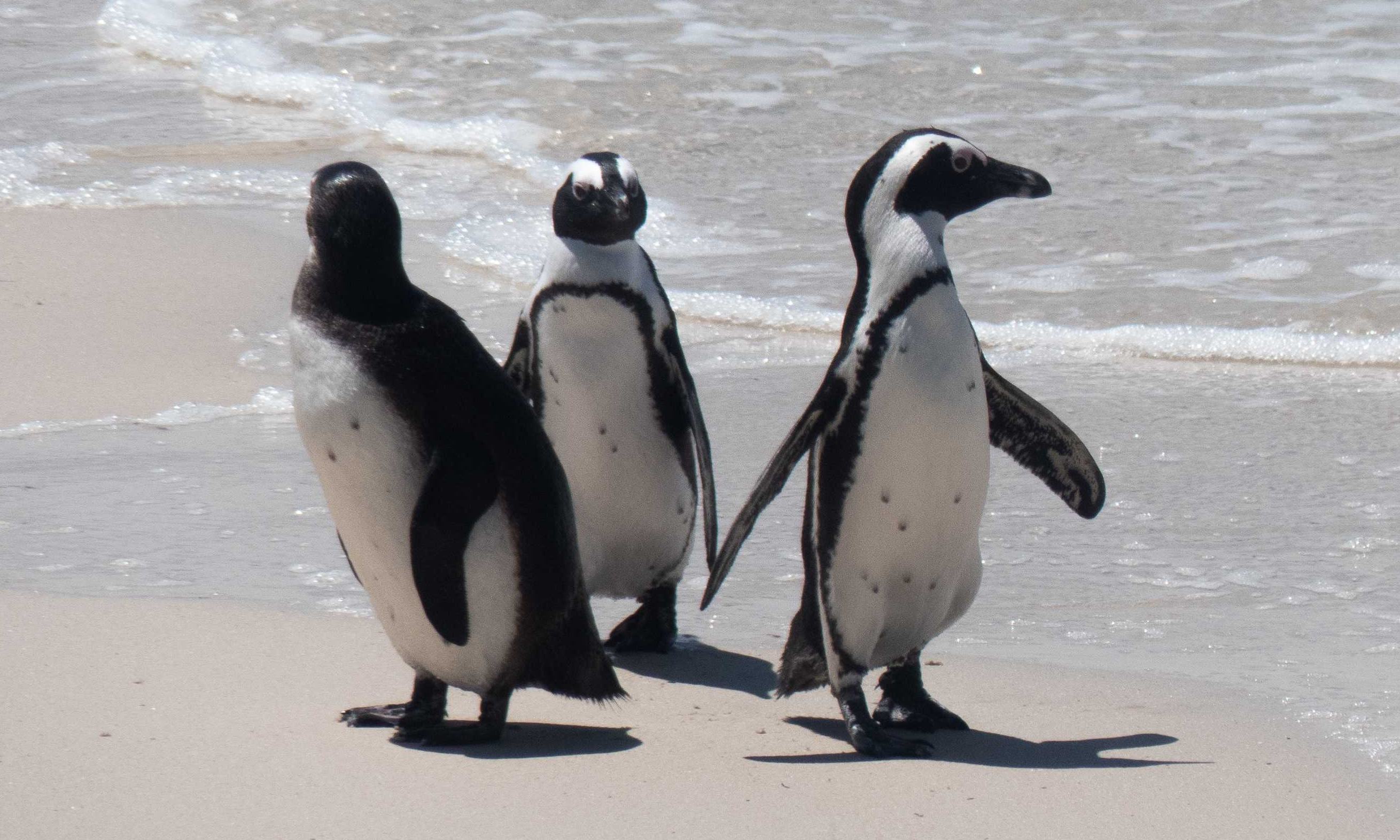
African Penguins
(Spheniscus demersus)
Research Subject
African penguins (Spheniscus demersus) are sedentary birds that frequent the rocky coasts of
Africa, from South Africa to Namibia. Despite their
iconic nature, we still know little about how this
species perceives and understands its world. Yet,
penguins’ inherent attraction towards conspecifics makes
them an ideal system to study the mechanisms that
produce decisions at both the individual and group
levels. In the wild, penguins breed in large colonies
during the breeding season and fish communally at sea.
At the
Seneca Park Zoo, we exploit penguins’ attraction towards conspecifics
as a motivator (reward) when assessing cognition at the
individual level. We also study how decision making is
affected by context at the group level. Since African
penguins are red-listed as 'Endangered' (EN) according
to the International Union for Conservation of Nature
(IUCN), we also aim to exploit our acquired knowledge of
penguins’ cognition and behavior to inform conservation
practices as well as welfare in captivity.
Projects:
Individual Reasoning,
Collective Navigation

Humans
(Homo sapiens)
Research Subject
In addition to our research on a variety of animal
species, we are also interested in studying how humans
(Homo sapiens) solve
some of the same problems to uncover the evolutionary
origins as well as potentially unique features of these
cognitive abilities.
Projects:
Emergence of Conventions